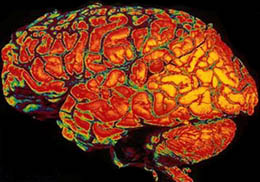Do cell phones cause psychiatric illness? This psychotherapist thinks so - and wrote about it. Read at Scribd - decide for yourself.
Link
From http://www.livinghealthiernow.com/page_4.html
About Stephen King's sci-fi novel CELL
Showing posts with label brain damage. Show all posts
Showing posts with label brain damage. Show all posts
Saturday, April 30, 2011
Tuesday, January 4, 2011
Psychiatric Drugs as Agents of Trauma by Charles L. Whitfield, MD
Psychiatric Drugs as Agents of Trauma by Charles L. Whitfield, MD
Excerpted from: The International Journal of Risk & Safety in Medicine 22 (2010) 195-207
DOI 10.3233/JRS-2010-0508
IOS Press
Volume 22, Number 4, 2010
Private Practice of Trauma Psychology, Psychiatry, and Addiction Medicine; Consultant and Research
Collaborator at the Centers for Disease Control and Prevention, 3462 Hallcrest Dr., Atlanta,
GA 30319-1910, USA and Board of Directors of the Leadership Council on Child Abuse
& Interpersonal Violence, Baltimore, MD, USA
Tel.: +404 843 3585; E-mail: c-bwhit@mindspring.com
Abstract. Drawing on the work of numerous psychiatrists and psychopharmacologists and my own observations, I describe how most common psychiatric drugs are not only toxic but can be chronically traumatic, which I define in some detail throughout this paper. In addition to observing this occurrence among numerous of my patients over the past 20 years, I surveyed 9 mental health clinicians who had taken antidepressant drugs long-term. Of these 9, 7 (77%) experienced bothersome toxic drug effects and 2 (22%) had become clearly worse than they were before they had started the drugs. Based on others’ and my observations I describe the genesis of this worsened condition which I call the Drug Stress Trauma Syndrome.
These drug effects can be and are often so detrimental to the quality of life among a distinct but significant minority of patients that they can no longer be considered trivial or unimportant. Instead, they are so disruptive to many patients’ quality of life that their effect becomes traumatic, and are thereby agents of trauma. These observations and preliminary data may encourage others to look into this matter in more depth.
Saturday, August 7, 2010
Western fast-food diet could be major cause of ADHD
Western fast-food diet could be major cause of ADHD
Attention deficient disorder (ADHD) is a growing problem, afflicting around 5 per cent of children. Now researchers say they have pinpointed one of its main causes. Adolescents who eat a Western diet of fast food - processed, fried and refined meals – are twice as likely to suffer from ADHD as those who mainly eat healthier fare. A processed, fast food diet is very low in fatty acids, and high in total fat, saturated fat, refined sugar and sodium. Omega-3 fatty acids, folate and fibre - which can be found in fish, whole grains, fruits and vegetables – help develop mental health, and aid optimal brain function. Researchers at the Telethon Institute for Child Health Research in Perth, Australia studied the diets of around 1800 adolescents aged up to 14 years. Of these, 115 had been diagnosed with ADHD. Prof Wendy Oddy, who headed up the research, said that the fastfood diet also wasn’t providing enough micronutrients that can aid attention and concentration.
Source: Journal of Attention Disorders, 2010; doi: 10.1177/1087054710365990
Attention deficient disorder (ADHD) is a growing problem, afflicting around 5 per cent of children. Now researchers say they have pinpointed one of its main causes. Adolescents who eat a Western diet of fast food - processed, fried and refined meals – are twice as likely to suffer from ADHD as those who mainly eat healthier fare. A processed, fast food diet is very low in fatty acids, and high in total fat, saturated fat, refined sugar and sodium. Omega-3 fatty acids, folate and fibre - which can be found in fish, whole grains, fruits and vegetables – help develop mental health, and aid optimal brain function. Researchers at the Telethon Institute for Child Health Research in Perth, Australia studied the diets of around 1800 adolescents aged up to 14 years. Of these, 115 had been diagnosed with ADHD. Prof Wendy Oddy, who headed up the research, said that the fastfood diet also wasn’t providing enough micronutrients that can aid attention and concentration.
Source: Journal of Attention Disorders, 2010; doi: 10.1177/1087054710365990
Saturday, April 25, 2009
Tardive Dyskinesia: Jen's Story

A charming young woman with some digestive problems was given psychotropic (antipsychotic) medications. Medical decisions made for her have permanently disabled her; she has Tardive Dyskinesia - TD - and is in a wheelchair - probably for life.
Jen's Pages
"Why is this young woman in a wheelchair?"
"Tardive dyskinesia is characterized by repetitive, involuntary, purposeless movements. Features of the disorder may include grimacing, tongue protrusion, lip smacking, puckering and pursing of the lips, and rapid eye blinking. Rapid movements of the extremities may also occur. Impaired movements of the fingers may also appear. For comparison, patients with Parkinson's disease have difficulty moving, while patients with tardive dyskinesia have difficulty not moving.
Other closely related neurological disorders have been recognized as variants of tardive dyskinesia. Tardive dystonia is similar to standard dystonia but permanent. Tardive akathisia involves painful feelings of inner tension and anxiety and a compulsive drive to move the body. In the extreme, the individual undergoes internal torture and can no longer sit still. Tardive tourettism is a tic disorder that can closely mimic Tourette Syndrome, sometimes to the point where the two can only be distinguished by the details of their onsets. Tardive myoclonus, a rare disorder, presents as brief jerks of muscles in the face, neck, trunk, and extremities."
- Wikipedia
Antipsychotics are not the only medications that can cause TD. You can also get this condition from antidepressants. Depending on where you live, your doctor may or may not be legally bound to tell you about side effects of medications s/he prescribes for you, This information is available from drug companies - pharmacists in the US can show you in the "Big Red Book" and in Canada in the "CPS" - and on package inserts.
This information is in the Merck Manual too. Another online resource, very amusing and factual, is here.
Get good information before you make a medical decision; mistakes can be very costly.
Saturday, March 21, 2009
Chemo Brain: Cognitive Effects of Chemotherapy

"The systems of the body most affected by chemotherapy drugs include visual and semantic memory, attention and motor coordination.[6] These effects can impair a chemotherapy patient's ability to understand and make decision regarding treatment, perform in school or employment and reduce quality of life.[6]
Breast cancer survivors who were treated with chemotherapy have to work harder to perform tasks than survivors whose treatment was surgical. A year after treatment the brains of cancer survivors treated with chemotherapy had physically shrunk while those of people not treated with chemotherapy had not.[7]
Post-chemotherapy cognitive impairment comes as a surprise to many cancer survivors. Often, survivors think their lives will return to normal when the cancer is gone, only to find that the lingering effects of post-chemotherapy cognitive impairment impede their efforts. Working, connecting with loved ones, carrying out day-to-day tasks—all can be very challenging for an impaired brain. Although post-chemotherapy cognitive impairment appears to be temporary, it can be quite long-lived, with some cases lasting 10 years or more.[8]"
Link
Discussion at NPR
Thursday, March 19, 2009
Monday, January 12, 2009
Lift Kids Out of Poverty, Protect Their Brains

Growing up in poverty can physically harm a child's brain development, suggests a new study co-conducted by a University of British Columbia researcher.
Add that to a growing stack of findings that child advocates are using to argue the B.C. government needs to do more to tackle child poverty in a province that trails the rest of Canada in that category.
UBC pediatrician Tom Boyce worked with colleagues at the University of California and Stanford to measure how differences in a child's family socioeconomic status determine differences in neurological functioning in the pre-frontal cortex -- the part of the brain associated with executive functions and reasoning.
Their resulting study, to be published in MIT's Journal of Cognitive Neuroscience, found that poorer children's pre-frontal cortexes were more likely to exhibit signs of damage or "altered" functioning identified with shortened attention spans and other learning problems.
Child and youth advocates say the new research is consistent with other studies finding that poverty sickens kids and impairs their development.
A study recently released by the Canadian Institute for Health Information reveals that low income Canadians are at elevated risk for mental health hospitalization, diabetes and childhood asthma.
Article here.
Tuesday, November 18, 2008
Brain Injury Evaluation
TBI: An online kit with eight modules on traumatic brain injury evaluation is here
Tuesday, May 20, 2008
Monkeys given vaccines develop Autism behaviors

For some time it has been hard to prove whether vaccines caused the increase in the number of autistic children in industrialized countries.
Now researchers at the University of Pittsburgh have vaccinated monkeys to see how their neural development would change when inoculated according to the schedule of common vaccines.
These animals develop autistic
behavioral patterns.
Another article here
New test can detect autism as early as nine months of age
Monday, May 12, 2008
Some Information on Antidepressant Harm

Read about antidepressant toxicity and brain damage here.
Update: Antidepressants plus other substances can make you behave very oddly. A story has just come in from the UK that one man, behaving erratically while on antidepressant meds and alcohol, was shot and killed by police.
Story here.
Wednesday, April 9, 2008
Dr. Sears: Does your child have N.D.D.?

Want some candy? - Hansel and Gretel image by Batchelor, from the golden age of children's book illustration.
Dr. Sears tells us your child may have not A.D.D. but Nutritional Deficiency Disorder.
Get the MIND Guide to Mood and Food here
Read about Chef Jamie Oliver's school lunches project here
Monday, April 7, 2008
Botox: Brain Freeze

Dorian Grey Department:
According to this article from the UK's Independent, Botox freezing can reach your grey matter.
Tuesday, March 25, 2008
NAMI speaker displays a brain at TED
It's hard to say what is most disturbing in this TED presentation by Jill Bolte Taylor: the disrespectful and manipulative way this NAMI speaker handles and displays a human brain as a prop; the patronizing and stigmatizing use of her brother in her presentation; her ignorance of the 29 physiological reasons why a patient may present as schizophrenic; or her claim that the hemispheres of the brain are completely separate from each other - only briefly mentioning the Corpus Callossum and ignoring the Medulla, Pons, Midbrain, Thalamus and Hypothalamus.
Visit the Harvard Brain Project here.
NAMI associates have been implicated in more than one case of brain theft.
We hope that Dr. Bolte will stop singing long enough to read about the 29 causes of schizophrenia here and here, and we wish appropriate diagnosis, good medical treatment and speedy recovery to her brother.
Wednesday, March 19, 2008
Do SSRI's Cause Lesions in Brains of Elderly?

"Antidepressant linked to worsening white matter in elderly
Reuters
Tue, 18 March 2008
The results of a study employing serial cranial MRI suggest that elderly adults who use tricyclic antidepressants may be at increased risk for progression of white matter lesions, which have been linked with late-life depression by previous studies."
Article here
Sunday, March 2, 2008
Myth of the Antipsychotic

Link
Antipsychotic drugs don't work, are causing a brain damage epidemic and almost triple the risk of dying early, a new book claims. Yet the mental health establishment, as it did with Prozac, is failing to take the evidence seriously.
Historically, whatever dissenters thought has been ignored. So, it appears, have new studies which indicate that antipsychotics do not work long-term. For example, a US study last year in the Journal of Nervous and Mental Disease reported that people diagnosed with schizophrenia and not taking antipsychotics are more likely to recover than those on the drugs. The study was on 145 patients, and researchers reported that, after 15 years, 65% of patients on antipsychotics were psychotic, whereas only 28% of those not on medication were psychotic. A staggering finding, surely? So where were the mainstream media yelps of "breakthrough in schizophrenia treatment". Not a squeak.
Moncrieff's second point is that the psychiatric establishment, underpinned by the pharmaceutical industry, has glossed over studies showing that antipsychotics cause extensive damage - the most startling being permanent brain atrophy (brain damage) or tardive dyskinesia. As in Parkinson's Disease, patients suffer involuntary, repetitive movements, memory loss and behaviour changes. Antipsychotics cause atrophy within a year, Moncrieff says. She accuses her colleagues of risking creating an "epidemic of iatrogenic brain damage".
Moncrieff is a hard-nosed scientist, so she is respectfully reserved. But gross scientific misconduct is her accusation. "It is as if the psychiatric community can not bear to acknowledge its own published findings," she writes.
...
Psychiatrists should be involved in "shared decision-making" with patients, and would have to go to civil courts to argue their case for compulsory treatment. "Psychiatry would be a more modest enterprise," writes Moncrieff, "no longer claiming to be able to alter the underlying course of psychological disturbance, but thereby avoiding some of the damage associated with the untrammelled use of imaginary chemical cures."
The mental health establishment should learn from the Prozac story and pay attention. It's about time.
Subscribe to:
Posts (Atom)






